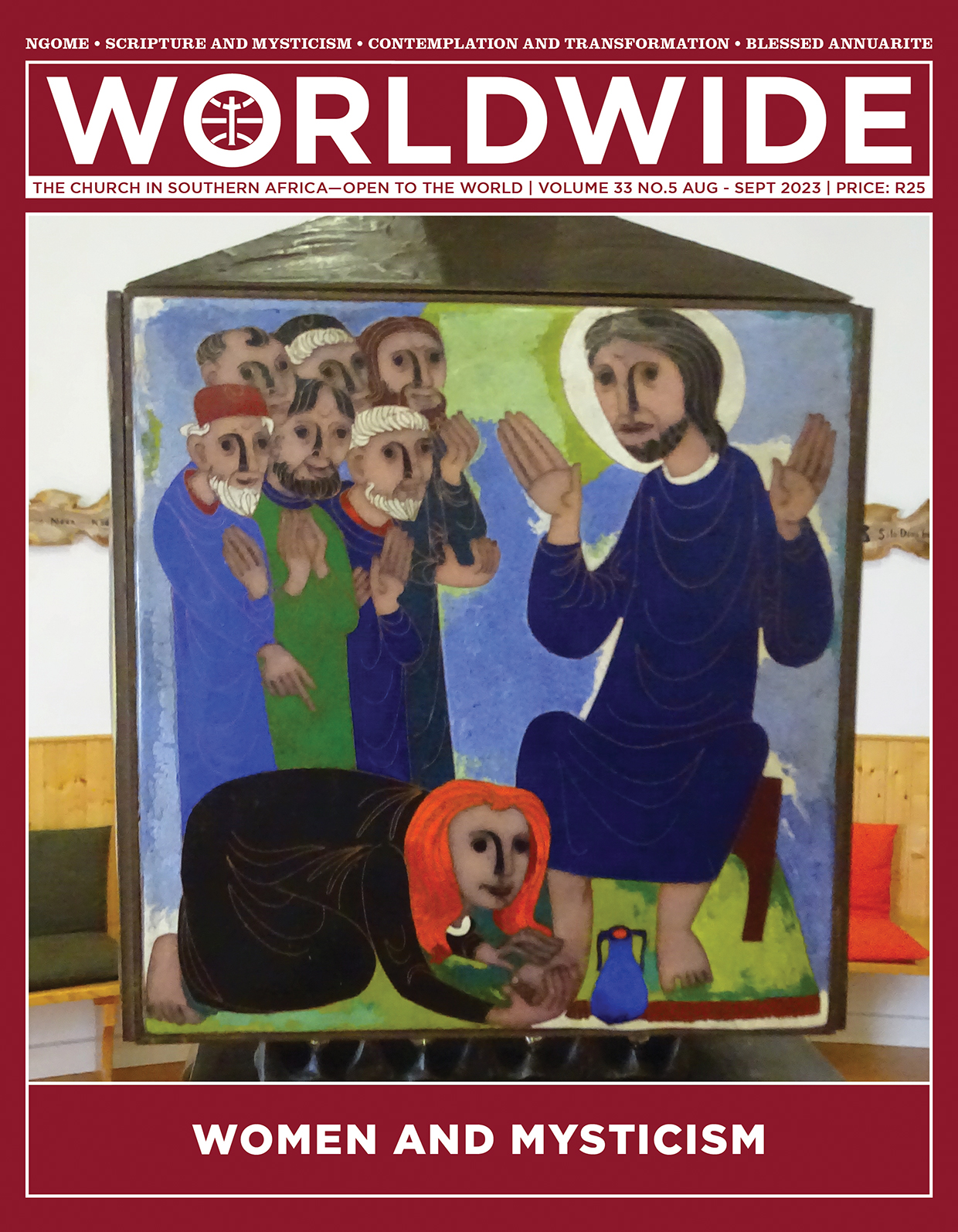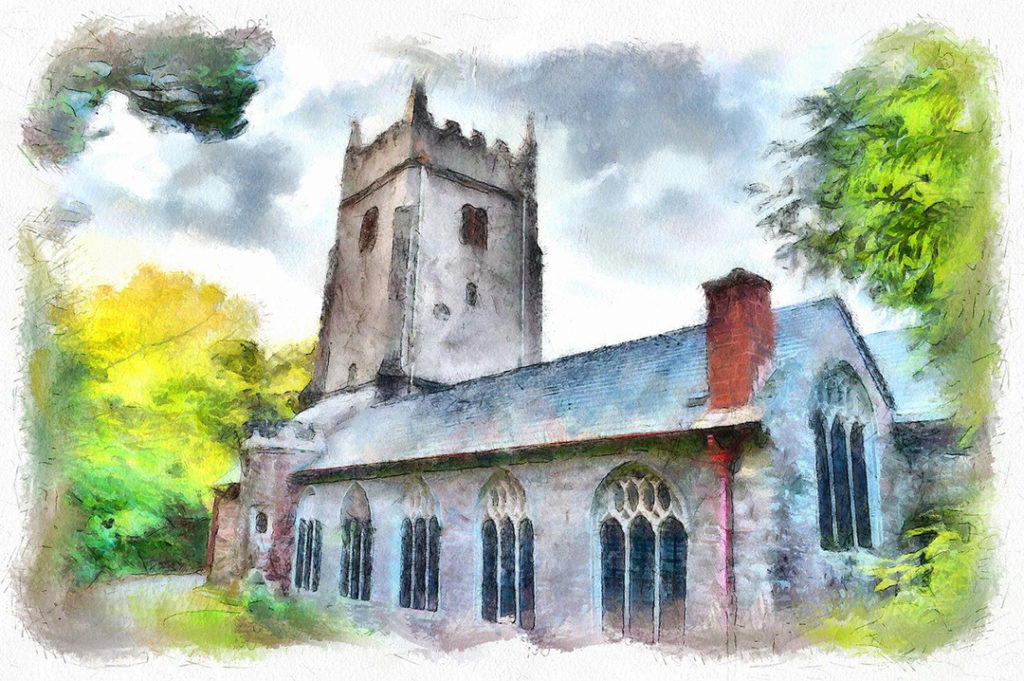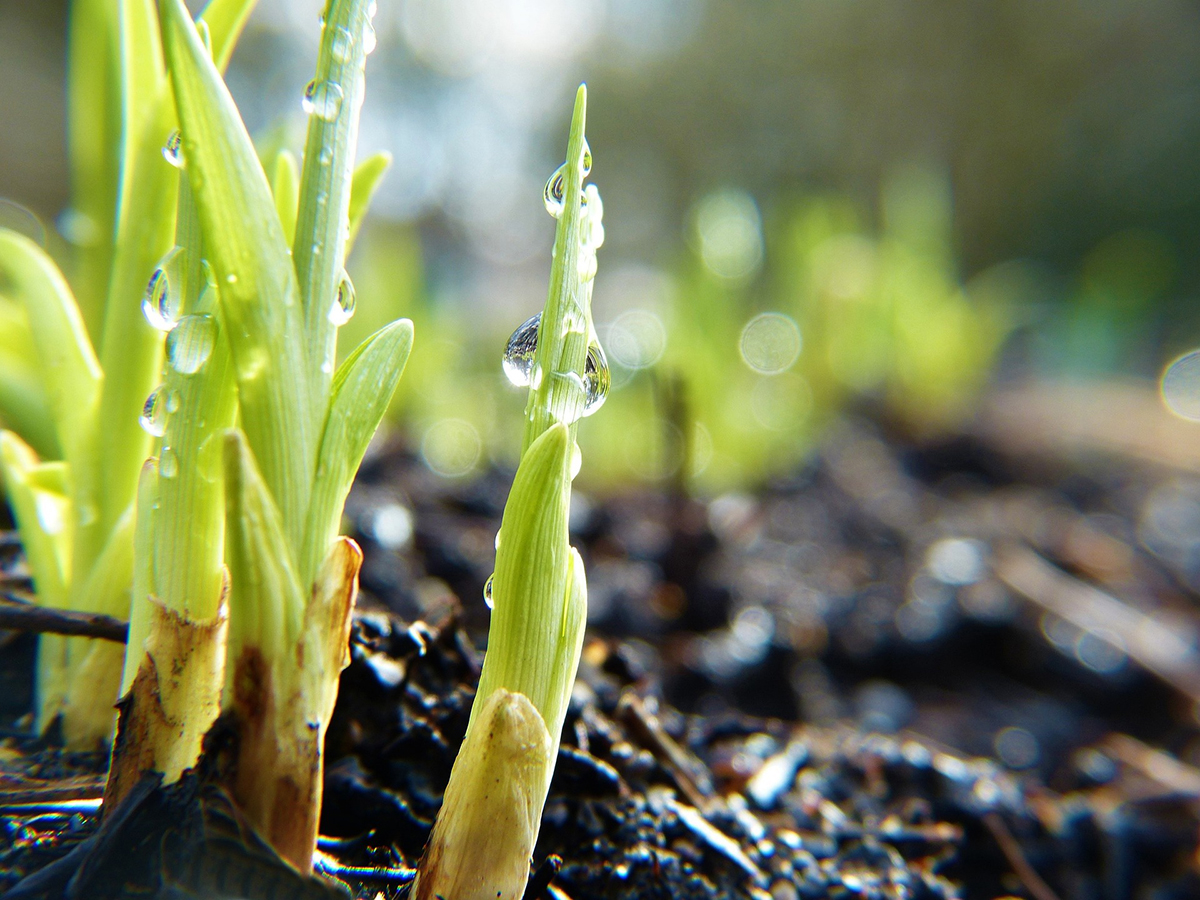
WOMEN AND MYSTICISM
Mary anoints Jesus’ feet at Bethany (John 12:1–8). The scene is part of a series which represents passages of women with a prominent role in the Scripture. The decorations are placed around the sides of the Tabernacle in the Chapel of Meditation at the University of Mystics in Avila, Spain.
Mary listens to and manifests her love for Jesus. Contemplation becomes the mesh in which her Spirit-led actions find their meaning and support.
YOUTH VOICES • MYSTICAL EXPERIENCES

Activating a Deeper Life
The desire for intimate union with the divine and the search for transcendence are common in most cultures and traditions. In Christianity, mystical encounters are outpourings of Grace to a soul who thirsts to welcome the Infinite
BY JILL WILLIAMS | CANDIDATE LANDSCAPE ARCHITECT, PRETORIA
Searching for communion
People, particularly in their youth, search for ways in which to experience true freedom, raw truth and a higher level of understanding and being. Whatever the case may be, this journey—of becoming increasingly aware of and knowing oneself and one’s connectedness to a purer, higher being—often takes on different forms from person to person. Often, this journey takes the form of a series of conscious natural efforts to achieve a supernatural outcome and experience. Anyone, no matter what religion they practice, has a deep yearning for intimacy; a closeness with something or someone other than oneself. We are all connected in one or more ways, and this yearning for deep communion and knowledge of oneself and the world around us is in itself a longing to unpack spiritual mystery.
We are made of a physical body, a soul (the mind and emotions) and a spirit. The Divine, in most religions, such as Christianity is believed to be Spirit. Communication and communion between the physical and the spiritual is possible, however, for the physical to be aware of the spiritual, a certain level of ‘unveiling’ is required. There are many ways in which people strive to unravel this mystery and to achieve higher states of existence to draw closer to the divine.
From the beginning of time, humanity has been displaying its awe of the cosmos and the greatness of the divine that has brought this into being. In attempts to ‘touch’ divinity, various cultures and religions have used a plethora of channels to bridge the intangible gap between one’s reality and physical existence and spiritual reality and existence. This has been done through various forms of prayer, music, consumption of narcotics or stimulants, the offering of sacrifices, fasting, and various other forms of physical actions and activities that aid one or the community to enter into deeper communion with the divine.
Natural channels towards connectivity
The dried leaves of the Helichrysum plant, known as Impepho (IsiXhosa), are considered holy and are used traditionally to invoke ancestral spirits, cleanse negative energy and calm evil spirits. It is further believed to invite the presence of good spirits, clarify dreams and bring fortunes (Belani & et.al., 2022, pp. 1-2). This is similar to the burning of sage, used more popularly in Western Culture. This helps creates the atmosphere in which spiritual communication and activity can take place.
Anyone, no matter what religion they practice, has a deep yearning for intimacy
According to (Snider 2020), in the Rastafarian way of doing things, the smoking of cannabis, also known as weed, ganja and marijuana, is not casual and is not meant for entertainment. It is considered a holy plant and smoking it is a ritual that aids the user to reason deeply. This forms part of “reasoning sessions” called Nyabinghi. In these sessions, a prayer is said to Jah or Haile Selassie I, and then smoking the holy plant begins. This ritual is said to bring Rastafarians to a deeper place of connection with their god (Snider 2020).

According to Healthline (Kubala 2022), Ayahuasca is a sacred brew made mainly from the leaves of the Psychotria virdis shrub and the stalks of Banisteriopsis caapi vine, and is used by ancient Amazonian tribes and some religious communities in Brazil and North America to open up their minds to be healed or receive revelations. Ayahuasca retreats are offered by shamans or curandero, who prepare the mixture for consumption and guide users in their altered experience of hallucinations and psychedelic effects thereafter (Kubala 2022). In preparation for these retreats, one is asked to abstain from tobacco, narcotics, sex and caffeine and to follow a vegan diet for 2-4 weeks, to purify one’s body. The results of such retreats are said to improve psychological wellbeing and it is said to aid in treating addiction, PTSD, anxiety and treatment-resistant depression. It is, however very risky and may lead to death (Kubala 2022).

These types of channels sometimes lead the participant into a trance-like state. A trance, according to the Merriam Webster dictionary, is a state of profound abstraction or absorption. Many communities throughout the world connect with the divine through trance and are able to receive healing or messages for the community through this. The San enter into the altered state of trance through rhythmic dancing and hyperventilation. This is for healing sickness in the community and individuals (Boddy-Evans 2019).
Christian Communion with God
Do we as Christians need an aid to connect with God and to reach a deeper more intimate fellowship with Him? Have we somehow been missing out on experiencing the mystical or not been fully engaging in the experience of deeper intimacy with God? Jesus said that He came to give us life, and life in abundance (John 10:10). Zoe, the Greek word used for life in the Bible, is the state of one who is possessed of vitality or is animate; every living soul (Bible Study Tools 2023); of the absolute fullness of life, both essential and ethical, which belongs to God, and through Him both to the hypostatic “logos” and to Christ in whom the “logos” put on human nature (Bible Study Tools 2023).
Closeness with God is something anyone can experience and as Christians, requires only that you allow God to enter into your life and current reality
In the story of The Tower of Babel (Genesis 11:1-9), we see humanity attempting to reach the divine, not in order to have communion with God, but to be equal to Him. This attempt is rejected by God and the whole of humanity experienced a form of separation or division from not only God, through being cast down to the ground, but also with one another, through people speaking in different languages and not being able to communicate with one another.

At Pentecost, we see somewhat the opposite. Jesus instructs the disciples to wait for the coming of the Paraclete. The disciples do this, although in fear of persecution, in the Upper Room. They ascended to a place above the people in Jerusalem in a spirit of prayer and fasting, longing for God and asking for his guidance and the promised Holy Spirit. This created a mystical atmosphere for Heaven to touch Earth in the form of the descent of the Holy Spirit. Not only were the community of believers connected more intimately with one another through this experience, they became more intimately connected with God through the Holy Spirit. They also connected with the larger community through language and the speaking of tongues, which enabled more people to be drawn to God. A redemptive, full-circle experience for God and man.
According to the Catechism of the Catholic Church, “Spiritual progress tends toward ever more intimate union with Christ. This union is called ‘mystical’ because it participates in the mystery of Christ through the sacraments— ‘the holy mysteries’—and, in Him, in the mystery of the Holy Trinity. God calls us all to this intimate union with Him, even if the special graces or extraordinary signs of this mystical life are granted only to some for the sake of manifesting the gratuitous gift given to all” (CCC 2014).
Who is this deeper life with God meant for? Can people who are unbelievers or who are not in a good space with God, still experience union with Christ? In Christian circles, people often feel that deeper spirituality is only meant for the priest or the religious. King Saul of the Old Testament and Paul from the New Testament both shed light on this.
Mystical Experiences in Scripture
King Saul, after disobeying God, was not in a particularly good place with God and wanted to kill David. “Saul was told that David was in Naioth in Ramah, so he sent some men to arrest him. They saw the group of prophets dancing and shouting, with Samuel as their leader. Then the Spirit of God took control of Saul’s men, and they also began to dance and shout. When Saul heard of this, he sent more messengers, and they also began to dance and shout. He sent messengers the third time, and the same thing happened to them. Then he himself started out for Ramah. When he came to the large well in Secu, he asked where Samuel and David were and was told that they were at Naioth. As he was going there, the Spirit of God took control of him also, and he danced and shouted all the way to Naioth. He took off his clothes and danced and shouted in Samuel’s presence, and lay naked all that day and all that night. (This is how the saying originated, “Has even Saul become a prophet?”)” (1 Samuel 19:19-24)

King Saul’s sin could not prevent him from experiencing the power of the Holy Spirit. Although he did not intend to experience God, and was there for selfish reasons, he received spiritual revelation from the overflow of those who were seeking it and who had been actively fostering the atmosphere of prayer and praise.
Saul of Tarsus, on the road to Damascus also had a sudden mystical experience with God. “Then Saul, still breathing threats and murder against the disciples of the Lord, went to the high priest and asked letters from him to the synagogues of Damascus, so that if he found any who were of the Way, whether men or women, he might bring them bound to Jerusalem. As he journeyed he came near Damascus, and suddenly a light shone around him from heaven. Then he fell to the ground, and heard a voice saying to him, “Saul, Saul, why are you persecuting Me?” (Acts 9:1-4)
From the beginning of time, humanity has been displaying its awe of the cosmos and the greatness of the divine that has brought this into being
Although it is not indicated in the text, there is a high likelihood that the believers were praying for God to intervene in Saul of Tarsus’ attempt to have the Christian community wiped out. In both cases, we see a unique channel for experiencing and unlocking deeper intimacy with the divine: Intercession. The door is thus open to anyone to experience the Divine.
It may not look the same from person to person and even from one experience to another, but closeness with God is something anyone can experience and as Christians, requires only that you allow God to enter into your life and current reality. When you experience Him (and you will), may the experience uplift not only you but the people around you; even the whole of humanity.

